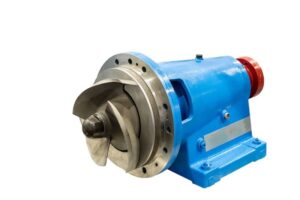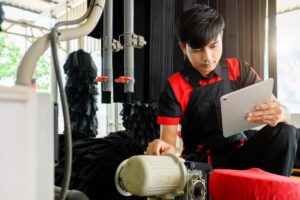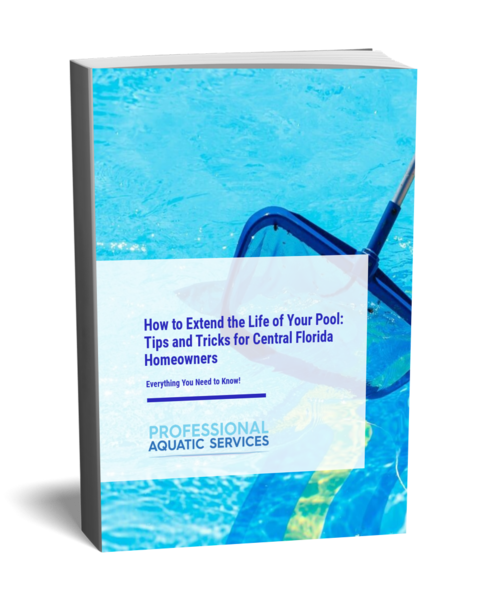Understanding the role of the pool pump impeller in your pool’s health is crucial. This small yet pivotal component ensures that water flow is maintained and your pool remains clean and inviting.
Today, we’ll delve into the common reasons behind impeller failures, from clogged impellers due to debris in the pump basket to wear from regular use. Whether you’re a new pool owner or have noticed a drop in filter pressure, this will equip you with helpful knowledge to keep your pool running smoothly.
Table of Contents
ToggleDecoding the Function of Your Pool Pump Impeller

A pool pump impeller is the heart of your pool’s circulation system, playing a crucial role in maintaining clean and healthy water. Think of it as a little propeller inside the pump housing that spins rapidly to pull water through the filter and back into the pool. This action is essential for dispersing chemicals evenly and filtering out any unwanted debris.
However, the impeller’s function goes beyond just moving water; it also impacts the overall efficiency of your pool pump. If the impeller is clogged or damaged, it can lead to poor water circulation, increased filter pressure, and even air leaks. Recognizing the importance of the impeller helps ensure that you maintain it properly or know when to call a professional for a service, keeping your pool in prime condition throughout the hot season.
This simple understanding will empower you to better identify and address issues, potentially saving you from costly pool pump repairs or replacements down the line. Isn’t it comforting to know that such a small part can have such a big impact on your summer enjoyment?
Common Causes of Impeller Failures
Understanding why your pool pump impeller fails can save you time and money, ensuring your pool remains a blissful retreat. Here’s a breakdown of the most common culprits behind these failures.
Debris and Blockages
Your impeller’s worst enemy could be lurking right in your pool. Twigs, leaves, and other debris can get sucked into the pump, leading to clogged impellers. When blockages occur, your impeller struggles to function efficiently, which might cause your pool system to work harder, reducing its overall lifespan. Regular cleaning and checking the pump basket lid for secure sealing can prevent these issues.
Wear and Tear
Like any frequently used appliance, pool pumps experience normal wear and tear. Over time, the impeller can wear down, especially if it operates under strain from blockages or uneven water pressure. This deterioration can result in diminished water flow and effectiveness. Adhering to a schedule upkeep can help extend the life of your pool equipment.
Improper Installation
Sometimes the root of the problem is the installation itself. An incorrectly installed impeller may lead to numerous issues, including air leaks and inefficiency. This is why opting for professional installation is crucial. Experts ensure that every component, from the impeller housing to the pump lid, is perfectly aligned and secured.
Chemical Damage
Pool chemicals are crucial for keeping the water clean but can be harsh on your pool equipment. Improper chemical balance can corrode your impeller, especially if the pump is running when chemical levels are high. Monitoring and maintaining the right chemical levels will protect your impeller and keep the water crystal clear.
By understanding these common causes, you can take proactive steps to maintain your pool’s heart—the impeller—and ensure it performs optimally season after season.
Symptoms of a Failing Pool Pump Impeller
Recognizing the warning signs early for a failing pool pump impeller can save you from bigger troubles down the line. Here’s what to keep an ear and eye out for:
Unusual Noises
Take note if your pool starts sounding more like a garage band than a quiet backyard oasis. Grinding or screeching noises from the pump motor often suggest something is amiss with the impeller. These sounds typically indicate that the impeller is either clogged or possibly hitting against something it shouldn’t.
Reduced Water Flow
A noticeable decrease in your pool’s water circulation might not just be a fluke. When impellers suffer damage or blockage, they struggle to maintain adequate water flow. If your pool starts filling slower or the vacuum seems to lack its usual power, the impeller could be the culprit.
Visible Wear or Damage
Take a moment to inspect the pool pump impeller visually. Obvious manifestation of wear, such as cracks, chips, or an overall worn appearance, are clear indicators that it’s time for a repair or replacement. Ensure your pool’s filter system is not bearing the brunt of a failing impeller.
Spotting these symptoms early can prevent more significant damage to your pool system and keep your swim season right on schedule.
Securing Expert Help for Pool Pump Repairs

Understanding the importance of addressing impeller failures is crucial for maintaining your pool’s health and functionality. Ignoring issues such as a clogged impeller, air leaks, or an aging variable speed pump can lead to bigger, costlier problems.
We encourage you to consult with professionals who specialize in diagnosing and resolving these specific issues. Whether you need to install a new pump or replace worn parts, ensuring your pool equipment is in top condition is vital. Professional Aquatic Services offers tailored solutions, utilizing precise procedures and the latest filters and technology, all at your preferred location. Take the step towards optimal pool health today—your pool will thank you!

